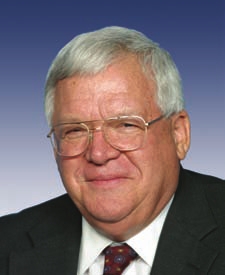I have proposed the following constitutional text as a means to end the filibuster.
Section 5. Neither House may have or establish any rule which prevents a majority from proceeding with a vote.
There is actually more to this than ending the filibuster. Sometimes, the Speaker of the House has a policy to not bring a measure to the floor of the House unless it has the support of a majority of the members of the party in power. (See the Hastert Rule. It was followed more by Newt Gingrich and Dennis Hastert than by any Speaker before or since.) When such a measure has the strong support of the minority party and a minority of the majority party, the effect is to deny the will of a majority of the House, and, to the extent that the House perfectly represents the people, to deny the will of the people.
The minority party can get around this by filing something called a discharge petition, which a majority of the members of the House must sign in order to bring a bill to the floor. Obviously, some members of the majority party must sign as well. This process has some timing issues: the bill must have been stuck in committee for 30 days in most cases, and it is handled by the House on only the second or fourth Monday of the month in most cases.
This proposed text would constitutionalize the discharge petition and remove all timing limitations on the will of the majority. Suppose the petition says, “We want to debate and vote on H.R. 1234 now.” The speaker would be constitutionally required to comply immediately, regardless of what the House is doing at the time, because this new rule would trump all other House rules. Of course, the petition could just as easily say, “We want to debate and vote on H.R. 1234 within the next two weeks.”
This may sound like a recipe for chaos, but it isn’t. A majority of the House would be required. It would be a rare event. Consider that a Speaker would only receive a document like this after repeated requests by the minority party to bring a given issue to the floor. If he repeatedly refused, and then a majority of the House signed such a document, it would be a major embarrassment to the Speaker. It would make him seem dictatorial and anti-majoritarian. He could lose the speakership. It is much more likely that the Speaker will permit certain bills to come to the floor that do not have the support of the majority of the majority party. It will be in his interest to do so.
All of the above dynamics would also apply to the Senate.
In cases like the current government shutdown, this proposed constitutional text would make it somewhat more likely that the two houses of Congress would be able to agree on a solution. The Democrats in the House could find 17 House Republicans willing to back an alternative proposal, or Republicans in the Senate could find 5 Senate Democrats willing to back an alternative proposal. The leadership of both houses would be powerless to prevent these proposals from coming to the floor for a vote. It could happen as quickly as a majority of either house wants it to happen.
Here is an opinion that the timing limitations on the current discharge petition rule effectively prevent it from being used to avert the shutdown. There’s more to say about the shutdown. Some other time.
Dennis Hastert, Speaker of the House from 1999 to 2007.
